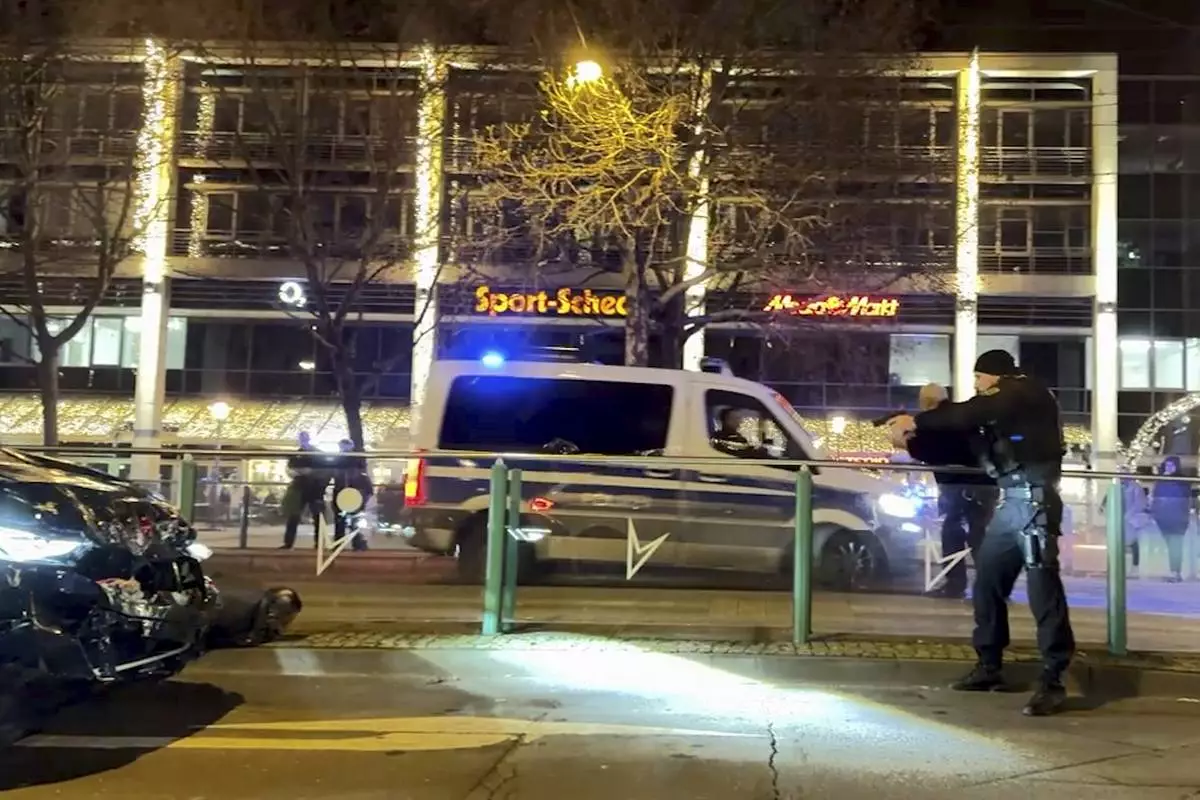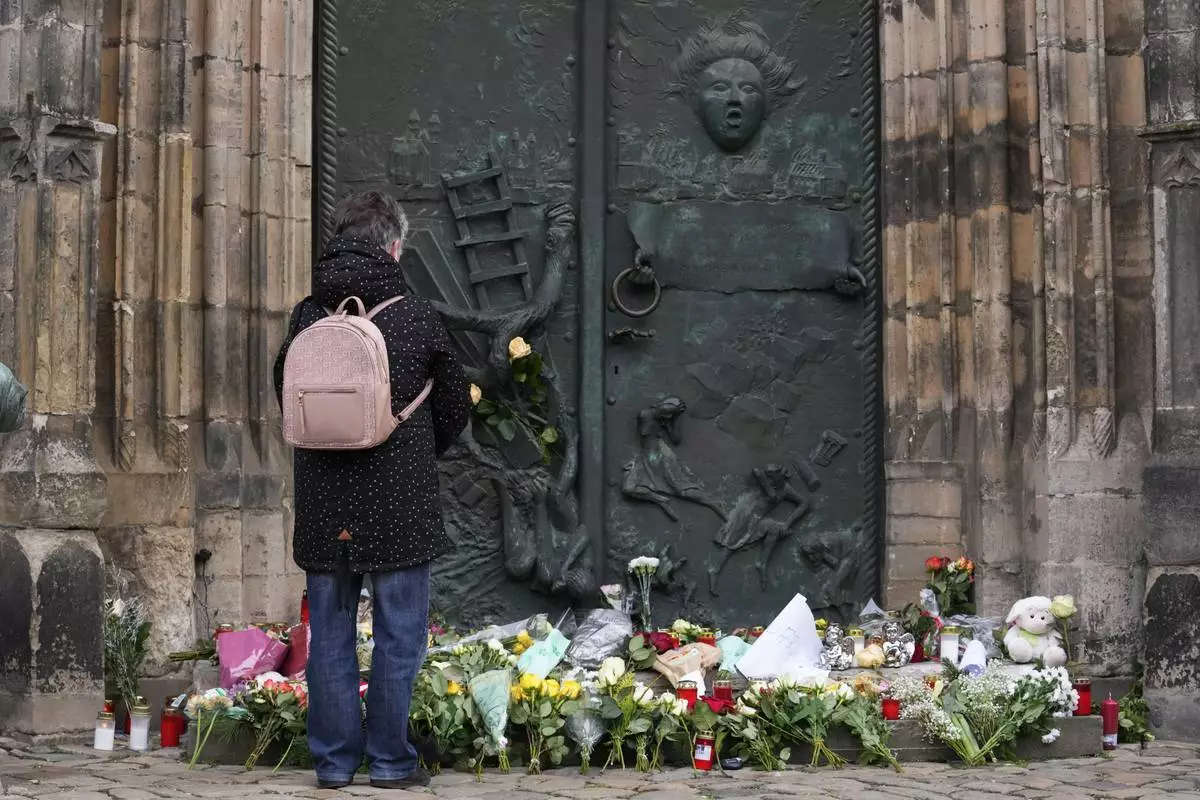GUADALAJARA, México (AP) — Guadalajara is the capital of a Mexican state that is home to tequila and Mariachi music. It is also considered the birthplace of a less flattering tradition — a homophobic soccer chant that has cost Mexico hundreds of thousands of dollars in fines over the past two decades.
It came as no surprise that the chant, a one-word slur that literally means male prostitute in Spanish, was heard from the crowd in Guadalajara’s Akron Stadium during a friendly between Mexico and the United States on Tuesday.
Despite on-screen messages and banners urging fans to refrain from using the chant and yell "Mexico” instead, the crowd shouted the slur at U.S. goalkeeper Matt Turner within a minute after the kickoff.
Multiple sanctions from FIFA and campaigns by Mexican soccer officials to educate fans have not been able to stamp it out. The chant persists in both club and national team soccer in Mexico, not least in games between the two North American rivals who will host the 2026 World Cup together with Canada.
When the U.S. men’s team played Mexico, in the CONCACAF Nations League final in Texas in March, the referee stopped the game twice due to homophobic chanting by Mexico fans. Last year, a game in Las Vegas between the two sides was cut short for the same reason.
On Tuesday, the referee didn't stop the game but organizers at one point tried to drown out the chant by playing “Cielito Lindo,” a popular folk song, over the stadium loudspeakers. Mexico won the match 2-0.
In Guadalajara, a city with a strong soccer tradition which has two teams in Mexico’s top soccer league and another two in the second division, many local fans told The Associated Press that they considered the chant to be harmless and only meant to poke fun at opposing teams.
“Soccer is still a party, and the chant is just for fun. People who yell it mean no offense to the rival,” said Luis Gallardo, a 38-year-old who was wearing the Mexico national team’s black away shirt. “It’s been going on for years and I don’t think it’s going to change.”
The slur, typically used when the opposing goalkeeper takes a goal kick, is hardly the only offensive chant heard in soccer stadiums worldwide, but its persistent use at international tournaments has become a costly embarrassment for the Mexican soccer federation.
The federation has been fined countless times by FIFA for “discriminatory behavior” by supporters, including 100,000 Swiss francs ($114,000) for two incidents during the 2022 World Cup in Qatar. Mexico has appealed those penalties.
The Mexican soccer federation long argued that the chant wasn’t aimed at gays and that the word had different connotations in contemporary Mexican culture. However, in recent years the federation launched campaigns to make it go away, with stadium announcers urging the crowd to refrain from discriminatory chants and eliciting the help of soccer stars and other celebrities to get the message across.
The federation in 2022 threatened fans shouting the slur at games with five-year stadium bans. At the time, then-federation president Yon de Luisa said regardless of the intention of those using the slur, what matters is how it’s received by others.
“If it is discriminatory, we should avoid it,” said De Luisa, who later resigned after Mexico’s poor performance in Qatar where the team was eliminated in the group stage.
The origin of the chant is somewhat unclear, but it’s been traced back to a 2004 Olympic qualifier between Mexico and the U.S. in Guadalajara, the capital of the state of Jalisco. It then spread to stadiums across Mexico with fans of Guadalajara soccer club Atlas.
Francisco Acuña, a 55-year-old Atlas fan, said the chant was a way for fans to express emotion during the game and shouldn’t be taken too seriously.
“The people who know soccer they know that the game is intense and even players get hot-headed on the field and then they hug each other at the end of the match,” he said.
Alejandro Oliva, a 40-year-old soccer fan in downtown Guadalajara, said he didn't understand why some people find the chant offensive.
“It amazes me that outside of Mexico people believe that it’s a homophobic chant. In Mexico it’s normal and it does not offend anyone,” he said. “I think that even people from the gay community use the word, and they don’t get aggravated.”
Not everyone sees it that way.
“It’s clearly homophobic because you are degrading a person with an insult of sexual and negative connotation,” said Andoni Bello, an LGBTQ+ activist and outspoken critic of the chant who played for Mexico in amateur soccer tournaments organized by the International Gay and Lesbian Football Association.
He said Mexico must get rid of the chant by the 2026 World Cup when the world’s eyes will be on the country. Mexico is set to host 13 World Cup games, including four in Guadalajara.
Bello urged tournament organizers to reach out to the LGBTQ+ community for help in dealing with the issue.
“It’s not just taking their pictures and saying that they are against the homophobia in the stadiums,” he said. “There is a real opportunity to educate the Mexican fan. In the World Cup in ’86 we were world famous because of the ‘Mexican wave.’ We exported a good celebration, let’s hope to eradicate the chant because being known for homophobia is very sad.”
AP soccer: https://apnews.com/hub/soccer

FILE - A message on the video board warns fans to not chant a homophobic slur during an international friendly soccer match between Mexico and Iceland, May 29, 2021, in Arlington, Texas. Mexico won 2-1. (AP Photo/Brandon Wade, File)











